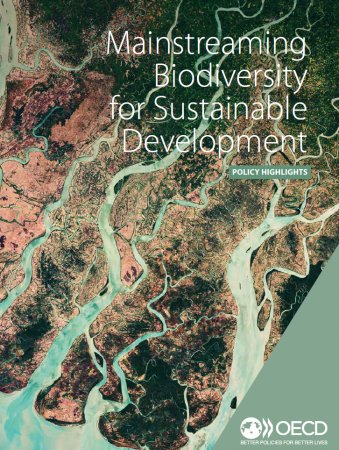Mainstreaming Biodiversity for Sustainable Development - Policy Highlights

“Biodiversity underpins all life and provides vital benefits to our societies and economies. Yet despite this, pressures from land use change, over-exploitation of natural resources, pollution and climate change are contributing to an alarming loss of living diversity. We have to reverse these trends.
Biodiversity and ecosystem services provide invaluable – but often invisible – benefits at global, regional and local scales. These include services such nutrient cycling, habitat provisioning, pollination, erosion control and climate regulation. The need to mainstream biodiversity and ecosystem services more effectively into national and sectoral policies has recently gained renewed impetus on the global policy agenda. In line with the Convention on Biological Diversity and the 2011-2020 Aichi Biodiversity Targets, the 2030 Agenda for Sustainable Development places strong emphasis on biodiversity for achieving these global goals.
The purpose of OECD (2018) Mainstreaming Biodiversity for Sustainable Development is to highlight examples of good practice, and remaining challenges, in four key areas. These areas are: mainstreaming biodiversity at the national level; mainstreaming biodiversity in the agriculture, forestry and fisheries sectors; development co-operation and biodiversity mainstreaming; and monitoring and evaluating biodiversity mainstreaming.
Insights are drawn from 16 predominantly megadiverse countries (or those with biodiversity hotspots) as these countries host some of the richest and often most threatened biodiversity in the world. The countries examined also span the full range of income groups, from high-income economies such as Australia and France to lower-income economies such as Ethiopia and Madagascar.
The report is intended for biodiversity policymakers and practitioners in developed and developing countries, as well as for development co-operation agencies and other national ministries. We hope this study will be of use as together we strive to develop better, more mainstreamed, biodiversity policies for better lives.” (p.2)
